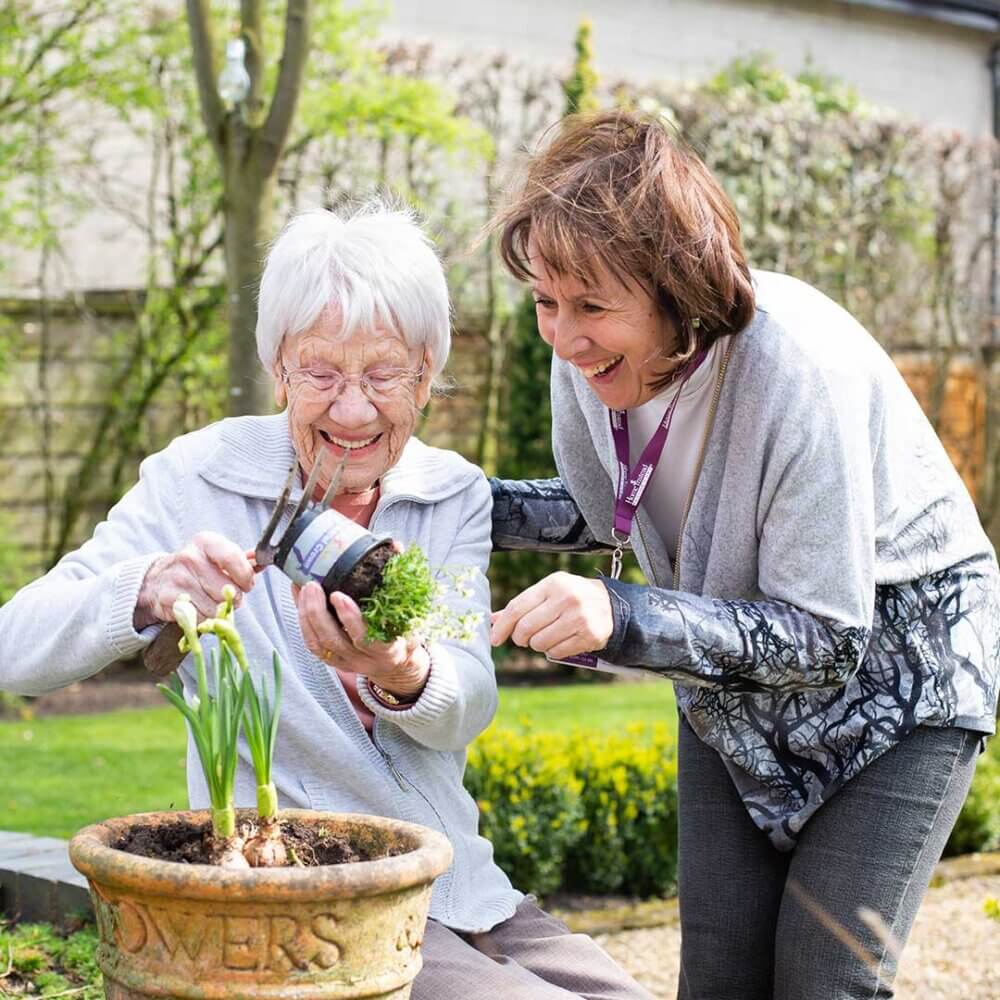Ideas for Conversation Starters with Seniors
Establishing moments for engaging in meaningful conversations can be challenging amidst our fast-paced lives.

Establishing moments for engaging in meaningful conversations can be challenging amidst our fast-paced lives. At Home Instead Ruislip & Harrow, we understand the value of deep, heartfelt discussions in fostering connections and enhancing the well-being of our clients. Whether you are a caregiver, a family member, or a friend, initiating and maintaining meaningful conversations can significantly improve the quality of life for those you care about. This article will guide you through starting meaningful conversations, covering topics and questions to encourage deep conversations in Ruislip and Harrow, as well as in professional and personal settings.

The Importance of Meaningful Conversations
Meaningful conversations are more than mere exchanges of words; they offer opportunities to understand, connect, and support each other. For seniors, these interactions can alleviate feelings of loneliness, boost mental health, and provide a sense of purpose. Here are some key reasons why meaningful conversations are essential:
Emotional Support
Sharing thoughts and feelings helps reduce stress and anxiety, offering emotional relief. When we talk to someone genuinely interested in our lives, it can significantly lift our spirits and provide comfort during tough times.
Mental Stimulation
Engaging in thoughtful discussions keeps the mind active, crucial for cognitive health. Conversations that delve into interesting topics can stimulate memory and thinking skills, helping seniors remain mentally sharp. Good conversational skills and the ability to steer the direction of the conversation towards stimulating topics can make a huge difference.
Strengthening Relationships
Deep conversations build trust and understanding, fortifying relationships with loved ones. Regularly spending time talking with family and friends helps maintain strong bonds and creates a network of emotional support. This social interaction is a key part of maintaining strong connections with friends and loved ones.
Personal Growth
Through these interactions, individuals gain new perspectives, fostering personal development and self-awareness. Sharing stories and experiences allows people to reflect on their lives and consider different viewpoints, contributing to their growth. This can be especially true in b

Starting the Conversation: Tips and Techniques
Starting a meaningful conversation can sometimes feel daunting. Here are some tips to help you initiate and sustain engaging dialogues in both professional and personal settings:
Be Present
Show genuine interest by actively listening and maintaining eye contact. Your attentive presence shows that you value the other person’s words, encouraging them to open up more. Being a good conversationalist involves listening more than speaking and ensuring the other person feels heard.
Ask Open-Ended Questions
Encourage detailed responses rather than yes or no answers. Questions like, “What was the most memorable moment of your life?” invite stories and deeper insights, making for more enriching conversations.
Find Common Ground
Identify shared interests or experiences to create a comfortable starting point. Whether it’s a shared hobby or a mutual friend, common ground can ease the flow of conversation and make it more engaging. This technique is also useful in small talk during social interactions or even in a job interview.
Be Patient
Allow the conversation to flow naturally without rushing or interrupting. Sometimes, moments of silence are necessary for thoughtful responses, so give the other person time to think and speak.
Show Empathy
Acknowledge and validate the other person’s feelings and experiences. Empathy helps build a deeper connection and makes the other person feel understood and supported.

Topics to Encourage Deep Conversations
Selecting the right topics can make a significant difference in fostering meaningful dialogues. Here are some suggested topics that can lead to enriching conversations:
Life Experiences
Discussing life experiences can be incredibly enriching. Examples of questions to ask include:
- What is the most memorable moment of your life?
- Can you share a story about a significant challenge you overcame?
- What advice would you give your younger self?
Family and Relationships
Talking about family and relationships can open up a lot of deep conversations. Questions to consider:
- How did you meet your closest friend or partner?
- What family traditions do you cherish the most?
- How has your relationship with your family evolved over the years?
Personal Values and Beliefs
Personal values and beliefs are central to who we are. Consider these questions:
- What values are most important to you and why?
- How have your beliefs changed over time?
- What do you think is the key to a fulfilling life?
Hobbies and Interests
Discussing hobbies and interests can reveal a lot about someone. Questions to ask include:
- What hobbies do you enjoy the most and why?
- Is there a new skill or hobby you’d like to learn?
- Can you describe a project or activity that you are particularly proud of?
Dreams and Aspirations
Dreams and aspirations are a rich topic for conversation. Consider these questions:
- What were your dreams when you were younger, and how have they evolved?
- Is there something you still wish to accomplish?
- What legacy do you hope to leave behind?
Examples of Deep Conversation Starters
To further facilitate meaningful conversations, here are some specific examples of conversation starters:
- “Tell me about a time when you felt truly at peace.”
- “What are the most important lessons you’ve learned in life?”
- “How do you define success, and do you feel you’ve achieved it?”
- “What role has gratitude played in your life?”
- “Who has had the most significant impact on your life and why?”

The Role of Home Instead Ruislip & Harrow
At Home Instead Ruislip & Harrow, we believe in the power of meaningful conversations to enhance the well-being of our clients. Our professional caregivers are trained to engage clients in thoughtful dialogues, ensuring they feel heard, valued, and connected. Here’s how we support our clients:
Personalised Care
We tailor our services to meet the unique needs and preferences of each client, ensuring they receive compassionate and respectful care. This personalised approach helps create an environment where clients feel comfortable opening up.
Companionship
Our caregivers provide companionship care, fostering a supportive and friendly environment where meaningful conversations can flourish. Spending time with a friendly face who is genuinely interested in their lives can make a big difference in our clients’ day-to-day happiness.
Mental Stimulation
We encourage cognitive activities and discussions that keep the mind active and engaged. From discussing current events to reminiscing about the past, our caregivers ensure that conversations remain interesting and stimulating.
Emotional Support
Our caregivers are empathetic listeners, offering emotional support and comfort through attentive and caring interactions. By being there for our clients during their moments of need, we help them feel more secure and content.

Local Counselling Support : Counselling Directory
For those needing additional support, local resources like the Counselling Directory can be invaluable, offering access to qualified therapists in Ruislip & Harrow.
By fostering environments where meaningful conversations can thrive, we not only enhance the quality of life for our clients but also strengthen the fabric of our community in Ruislip & Harrow. Through compassionate care and dedicated companionship, we help weave a tapestry of support that enriches everyone’s lives.

Conclusion
Starting meaningful conversations is a powerful way to connect with loved ones and enhance their quality of life. At Home Instead Ruislip & Harrow, we are committed to fostering these deep connections through our dedicated caregiving services. By exploring topics such as life experiences, family, personal values, hobbies, and dreams, we can create a supportive and engaging environment for our clients.
For additional support, the Counselling Directory offers a wealth of resources, ensuring that those in the Ruislip area have access to professional counselling services. Together, we can make every conversation count.
If you are interested in learning more about our services or how we can support your loved ones, please contact Home Instead Ruislip & Harrow.
